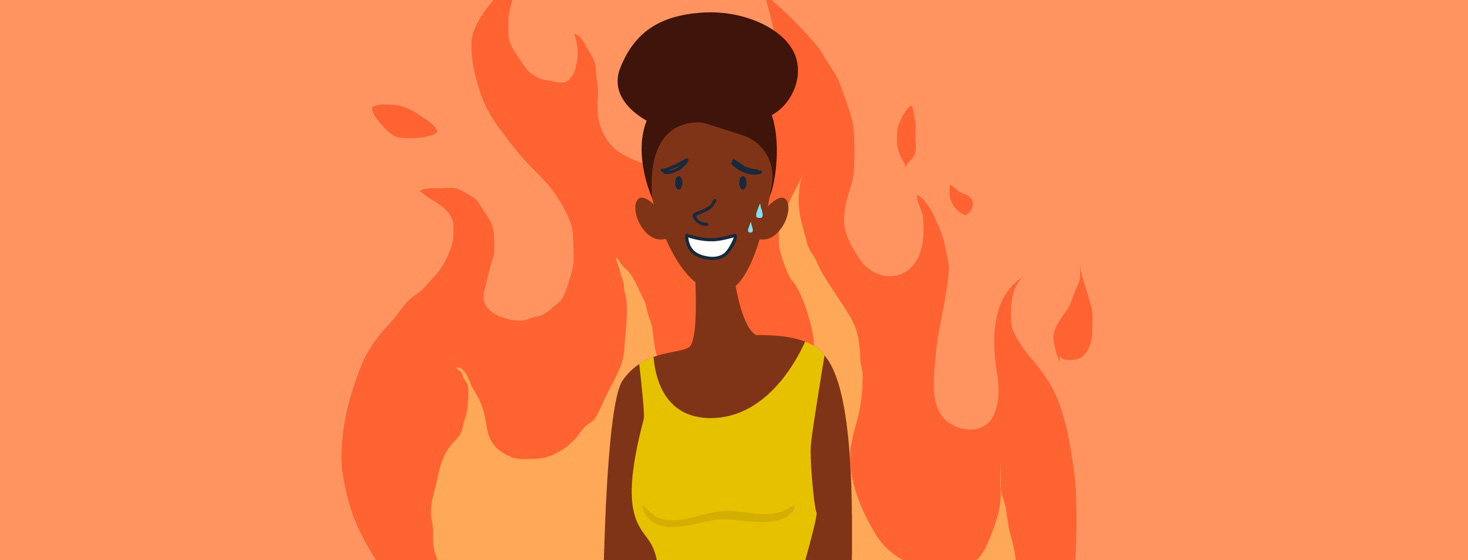Menopause - How Does it Affect Asthma?
Okay ladies, who is having fun with hot flashes, night sweats, and mood swings? Do you carry around a fan with you at all times? Dress in layers in case a hot flash hits and you need to shed a sweater? Turn the AC waaaay down and sleep with one leg hanging out of the sheets? (Funny how that seems to help...)
If any of these sound familiar, welcome to the Menopause Club! Too bad we don't have jackets. Of course, we wouldn't want to wear a jacket if we were having a hot flash.
Menopause affects asthma, too?
And just to make menopause even more fun, Mother Nature also throws another curveball by causing problems with asthma. Now, don't be squeamish, we can talk about this. Menopause is going to happen to all women sooner or later!
Think back to your health classes in school. You may remember that women's bodies are affected by female hormones (estrogen and progesterone), which are constantly changing. You may notice changes with your asthma during your period or while you are pregnant.1
But menopause can also affect your asthma. In fact, did you know that:
"Female hormones such as estrogen may have almost as much impact on the airways as allergies and hay fever. But estrogen itself is not the culprit in triggering the symptoms of asthma. Rather, it’s the fluctuation of estrogen -- the up and down of hormone levels -- that may cause inflammation in the airways."1
What menopause does to asthma
Well, menopause can't affect our asthma that much, can it?!
Sorry to say, yes. Research shows that:
- More women have asthma than men
- Women over 65 were twice as likely as men to end up in the emergency room
- Older women have the highest hospitalization rates
- Death rates for older women are about 4 times higher than all other age categories combined
1
Yikes! How can one little old hormone cause that much damage? Well, the ups and downs in estrogen levels are linked to inflammation in the lungs. And we know that inflammation in the lungs can cause problems with asthma.1
If you are currently in menopause, does it seem like your lungs are more cranky than usual? Are you having more flare-ups with your asthma? Well, it's not all in your head - menopause is linked to asthma flare-ups. In fact, asthma flare-ups peak at age 50, which is the average age for menopause in the United States.2 So now what?
Don't be discouraged!
Don't be discouraged about all of the statistics - knowledge is power!
You've got this! We made it this far in life, right?
Call your doctor and discuss it with her. This is a time for shared decision-making. When it comes to menopause, some women like to "tough it out." Others like to try hormone replacement therapy.3
Like any medication, hormone replacement therapy can have risks and benefits. So, talk to your doctor about what is right for you.
Finding the right treatment for you
Make sure you discuss how to treat your asthma. Do you need to adjust any of your inhalers? Inhaled corticosteroids are the top line of defense, but they also have risks and benefits - such as cataracts or osteoporosis. But other people have little to no side effects.4
I once heard a doctor say,
"If you have seen one case of asthma, you have seen one case of asthma."
So it's important to know what's right for YOUR body. And if you notice a change in your asthma during menopause, make sure you talk to your doctor.
Then turn down the AC again!
How has menopause affected your asthma? Share in the comments below!

Join the conversation